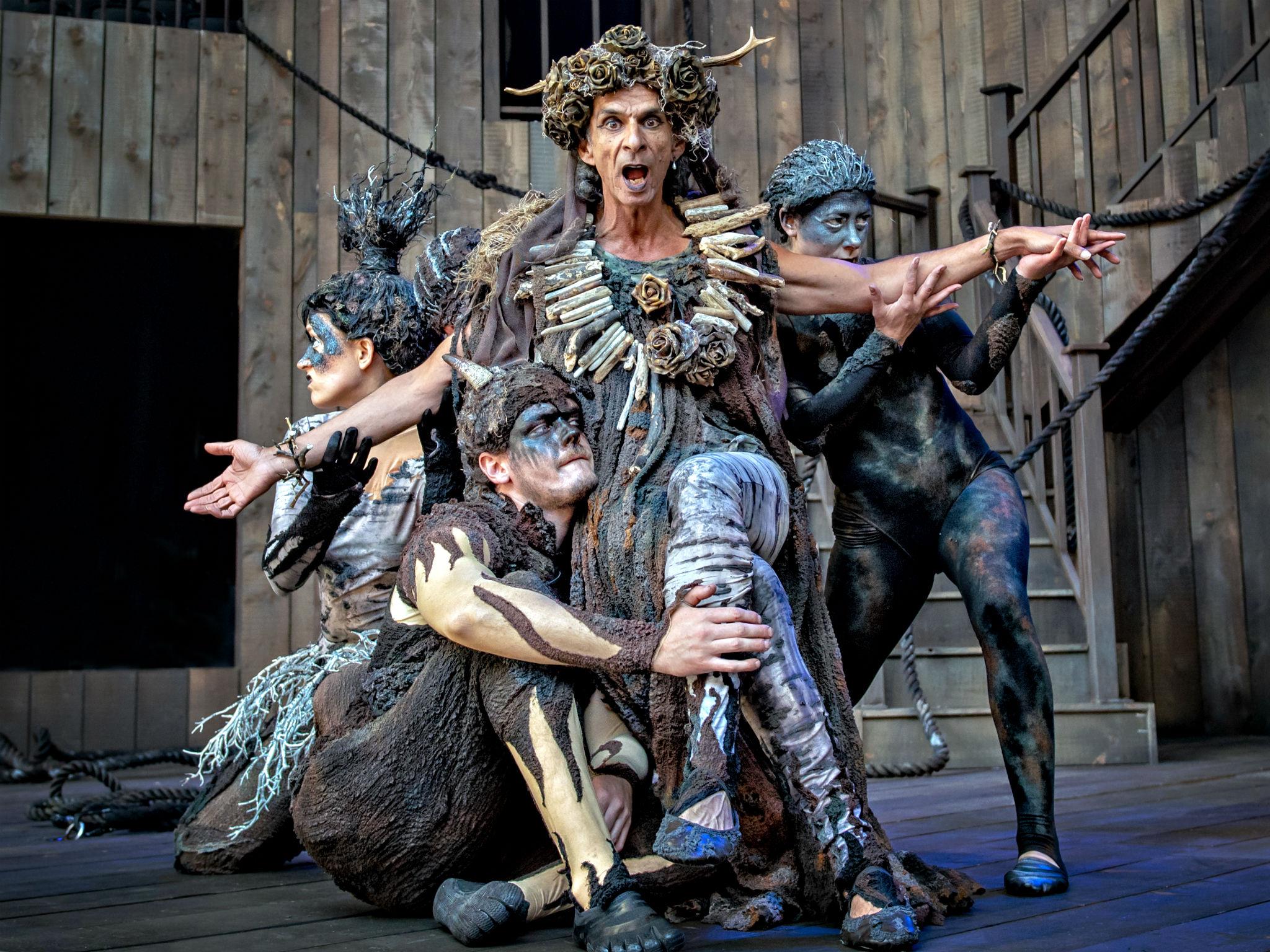A Midsummer Night’s Dream / Romeo and Juliet, Shakespeare’s Rose Theatre, York, review: This pop-up is a welcome home for Shakespeare in the north
Two productions of open-air summer favourites prove enjoyably clear sighted, even if the performances are a mixed bag

Welcome to Europe’s first pop-up Elizabethan theatre: this temporary structure, in a car park next to Clifford’s Tower in the heart of York, is “inspired” by the Rose Playhouse in London of 1587. Although that presumably wasn’t largely made of metal scaffolding…
Actually, the blend of harking-back heritage styling and modern needs-must works well: not attempting to hide that scaffolding is a better decision that attempting some faux-historical facade. As with the Globe, something in the open-air intimacy breeds a warm atmosphere, but here the seats are actually comfy too.
The obvious programming of this inaugural season is also very comfortable: Macbeth, Richard III, Romeo & Juliet and A Midsummer Night’s Dream. Watching a day-long double bill of the latter two, the project offers clear-sighted, accessible, enjoyable productions, with some uneven performances.
Juliet Forster’s A Midsummer Night’s Dream starts with a smart concept: it is Hippolyta’s story. She is a reluctant bride-to-be – an Amazonian queen awkwardly pulled into a courtly corset and high-heels.
As we plunge into the topsy-turvy world of the forest, the play follows the standard doubling where Theseus and Hippolyta become King and Queen of the fairies – only here, we’re in Hippolyta’s fantasy, where she is the power-holding, string-pulling, revenge-taking Oberon, and Theseus becomes Titania. Ideas of gender, femininity, and power are pleasingly scrambled, although while Amanda Ryan has an aptly gender-fluid swagger as Oberon, Antony Bunsee’s Titania feels too coyly mannered to be truthful.
Designed by Sara Perks, this is a rigorously un-twee wood: the fairies are in black and white body stockings or faun-like horns and haunches, and with ruffs and skirts made of pale dried twigs and bark; it looks more midwinter than midsummer. With (often underwhelming) aerial acrobatics on silks and hoops centre stage, the vibe is rather goth Cirque de Soleil.
But the cast also very effectively and economically create the forest just through heavy black ropes. And when the sprites twist and clamber over each other, yelping and hissing, or press up against the wooden staging, there is a genuine sense that this place is transformative, and darkly magical.
The production benefits from a stunning Hermia – Amy Lennox goes for full-on performative femininity mode. Cutsey, baby-voiced, and hem-twirling, she’s also manipulative in her girlish affection; when she doesn’t get what she wants, her outrage and petulance are very funny. Next to her, Olivia Onyehara’s Helena is rather one-note, and the usually hilarious lover’s tiff scene never quite ignites.
The mechanicals, however, get better and better – amusingly gormless in the woods, their play-within-the-play features absolutely the filthiest, funniest bit of business with the wall I’ve seen, as well as a sublimely miserable, ungainly 'man in the moon' struggling with the aerial hoop.
On to Lindsay Posner’ Romeo & Juliet, which is set rather more concretely: Mussolini’s Italy, 1932. This is sun-drenched, jazz-soaked, café-cultured Verona – but the threat of violence looms. The young Capulet men wear black shirts; their head is a gangster, in spats.
Actually, Robert Gwilym speaks like an East End geezer – sounds hideous on paper, works astoundingly well in practice. It adds menace, makes logical sense of the flick-knife quick lashing-out at his daughter, but most of all, is just a weirdly perfect match to the rhythms of the verse. A delicious revelation.
This is a lucid, sure-footed production, but while there’s gender-swapping afoot here too, I wished Posner had been even bolder.
Shanaya Rafaat plays Mercutio, and there are fascinating, tantalising hints that unspoken attraction may drive the character’s relentless, manic teasing of Romeo and insufferable showing off. But Rafaat’s performance, although having a convincing runs-with-the-lads strutting energy, is often over-egged. And Posner doesn’t take their potentially extra-chewy flirtatious friendship anywhere.
Alexander Vlahos and Alexandra Dowling as Romeo and Juliet are so very pretty, and so very conventional. Vlahos gives a detailed performance, nicely charting Romeo’s movement from cocky player to smitten lover, and his emo teenage meltdown is a funny but poignant reminder of just how very young these kids are. Dowling is utterly charming, but when pushed to extremes in the second act, there's a lot of stagey gesturing without much effect.
But Posner’s production has many excellent touches. The decision to make Paris uncomfortably old works (although you wish they’d ironically nodded to it on all the occasions people literally call him “young”). There’s strong comic work from David Fleeshman as a blustery Friar Lawrence, and from Julie Legrand as a babbling Welsh nurse, who makes Shakespeare sound absolutely colloquial. The fight scenes are staged with dancerly dash but also genuine danger, thanks to fight director Kate Waters.
Both these productions form persuasive accounts of familiar plays, and confirm this pop-up theatre as a very welcome summery home for Shakespeare in the north.
Until 2 September (shakespearesrosetheatre.com)
Join our commenting forum
Join thought-provoking conversations, follow other Independent readers and see their replies
Comments
Bookmark popover
Removed from bookmarks